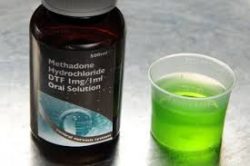Tips for Safe Recovery with Methadone Maintenance Treatment
Methadone Maintenance Treatment
Methadone maintenance treatment works as a type of substitution therapy that’s designed to relieve the effects of opiate withdrawal while reducing drug cravings. As a substitution therapy, methadone medication occupies the same brain cell receptors as opiates like heroin, Demerol and oxycodone. As a synthetic opiate drug, methadone can imitate the effects of opiates without producing the “high” effects associated with addition.
These combined effects make it possible for recovering addicts to function normally in everyday life while participating in the recovery process. While the medication component of methadone maintenance treatment does address a person’s physical addiction to opiates, this treatment approach also includes steps to help addicts deal with the psychological aspects of addiction.
As an opiate-based medication, methadone maintenance treatment can pose certain risks when standard treatment protocols are not followed. Tips for a safe recovery with methadone maintenance treatment reinforce these standard treatment protocols.
Tip #1 – Actively Participate in the Behavioral Treatment Program

It is important to strictly follow your methadone dosage prescription.
Methadone maintenance treatment includes a behavioral component where recovering addicts engage in psychotherapy, group therapy and support group meetings. As opiate addictions function on a physical and a psychological level, the behavioral aspect of the program becomes just as important as methadone’s role in the process. Without the behavioral treatment component, the risk of relapse increases considerably as recovering addicts fall back into the old behaviors and thinking patterns that go with the addiction lifestyle.
Tip #2 – Follow Methadone Prescriptions to the Letter
As each person’s body handles opiate effects differently, methadone prescription amounts may vary from person to person. According to the Substance Abuse and Mental Health Services Administration, doctors determine dosage amounts based on information received from patients in terms of the level of drug cravings and withdrawal effects each patient experiences. Following methadone prescription instructions and keeping doctors informed of any side effects greatly improves a person’s overall disposition and progress throughout the recovery process.
Tip #3 – Beware of Medication Interactions
As with most any type of medication, methadone may interact with other types of medications a person is taking. Medication interactions can greatly reduce methadone’s effectiveness and essentially defeat the whole purpose of methadone maintenance treatment.
Medication interactions to watch out for include:
- Antidepressants
- Anti-anxiety medications
- Antihistamines
- Tranquilizers
- Diuretics
- Heart and blood pressure medications
- Medications to treat HIV
- MAO inhibitors
- Antibiotics
- Alcohol-based medicines, such as cough syrups
To avoid medication interactions, it’s vitally important to inform doctors of any medication a person is currently taking before starting methadone maintenance treatment.
Tip #4 – Follow a Medically Supervised Tapering Schedule
Once recovering addicts reach a point where they feel comfortable discontinuing methadone maintenance treatment, it’s important to follow a medically supervised tapering schedule to avoid a potential relapse episode. As with any other opiate-type medication, the brain and body need time to adjust to methadone’s absence in the system. Stopping methadone altogether can bring on withdrawal symptoms that cause a person to resume drug use as a way to gain relief. By following a doctor-prescribed tapering schedule, recovering addicts can safely discontinue methadone maintenance treatment and live a drug-free life.